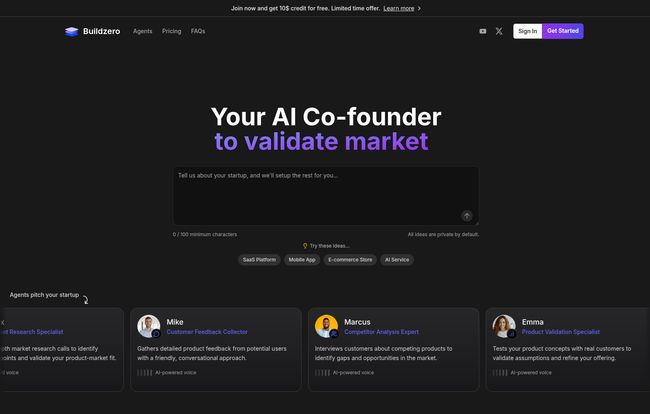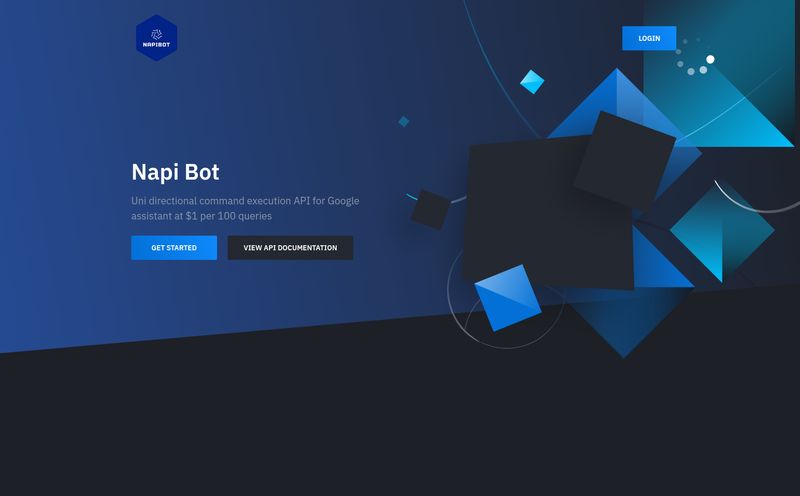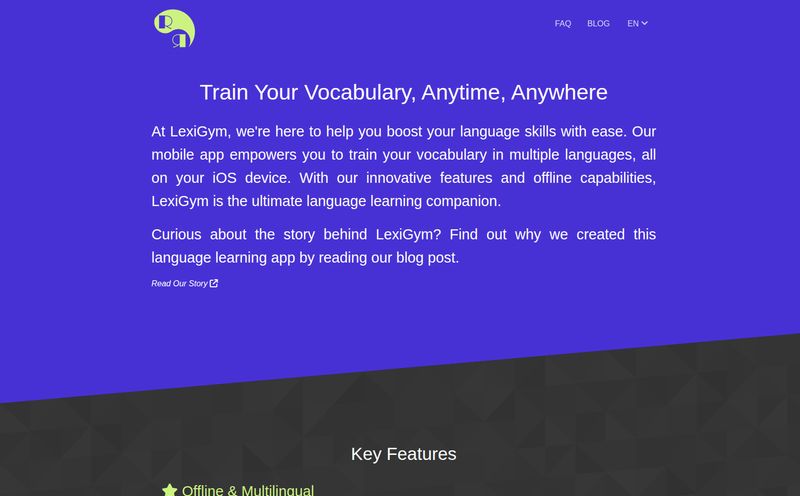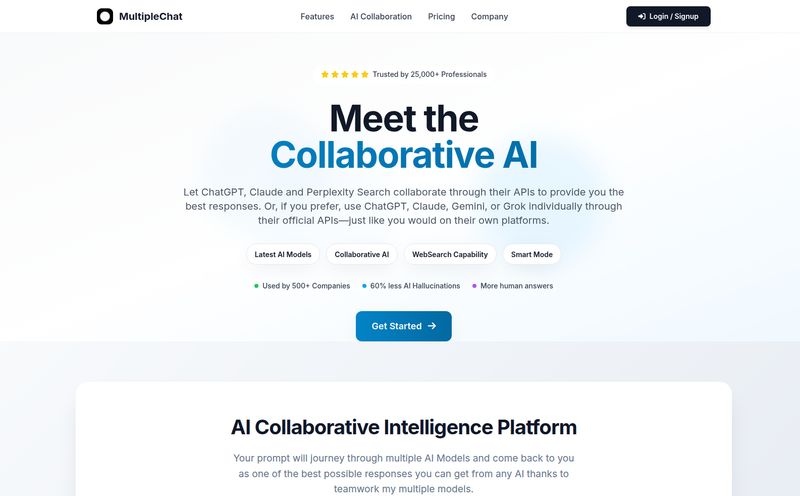Every founder has that same recurring nightmare. You spend six months, a year, maybe more, fueled by ramen and pure belief. You pour your savings, your sanity, your very soul into building The Next Big Thing. You launch. And then… crickets.
It’s the silent killer of more startups than anything else: building something nobody actually wants. We’ve all been told to “validate your idea” and “talk to your customers,” but what does that actually mean? For most of us, it means sending out a SurveyMonkey link that our mom and three friends fill out. Or worse, spending weeks crafting the perfect cold emails that get a 1% reply rate. It’s painful. It’s slow. And frankly, it sucks.
I’ve been in the SEO and traffic-gen world for years, and I’ve seen incredible products with zero search demand die on the vine. So when I stumbled upon a tool called Buildzero, my cynicism was immediately piqued. Their claim? An AI co-founder that validates your startup idea for you by actually calling potential customers. Wild, right?
So, What Exactly is Buildzero, Anyway?
Imagine you have a tireless intern. One that needs no sleep, has no fear of rejection, and can make hundreds of market research calls while you’re making coffee. That’s the basic premise of Buildzero. You feed it your startup pitch, tell it who your ideal customer is, and its AI agents get to work.
They’ve even given the AI agents personalities. You’ve got Mike, the Market Research Specialist, Marcus, the B2B Software Expert, and Emma, the B2C Validation Specialist. It’s a bit gimmicky, sure, but it frames the service in a way that makes immediate sense. You're not just running a script; you're delegating a task to a specialized AI. Instead of you grinding out calls, your AI co-founder does the heavy lifting, gathering feedback, and telling you if your brilliant idea is actually, you know, brilliant.

Visit Buildzero
The Agony of Old-School Market Research
Why does a tool like this even need to exist? Because traditional validation is broken. I once spent a solid month trying to validate a B2B SaaS idea. I built landing pages, ran some CPC ads, and tried to get people on the phone. The result? A handful of vague conversations and an ad spend that made my eyes water. The data was thin and the process was soul-crushing.
The biggest issue is that people have severe survey fatigue. We're bombarded with requests for feedback, and most of it is impersonal. A survey can’t capture the hesitation in someone's voice when you mention the price. It can’t register the spark of excitement when you describe a specific feature. Text is a low-fidelity medium for what should be a high-fidelity process. That’s the problem Buildzero is swinging at.
How Buildzero Changes the Game
The process laid out on their site is deceptively simple. You describe your idea, their AI finds potential users, gathers feedback through automated calls, and then you get the insights to either pivot or proceed. It’s like having a focus group on speed dial.
The real magic, in my opinion, isn't just the call itself—it's the advanced call transcriptions. This is where you get the raw, unfiltered data. You can see precisely what was said, how it was said, and identify patterns. Are people consistently getting confused at a certain part of your pitch? Are they bringing up a competitor you hadn't even considered? This is the gold that traditional surveys just can't mine. There's even a testimonial on their site that mentions getting early interest in just 12 hours after struggling with surveys. I even noticed a typo in it—they wrote “unbderstood customer”—which honestly makes it feel more real than some polished quote from a stock photo model.
The Good, The Bad, and The AI
Alright, no tool is perfect. Let's get into the nitty-gritty. After poking around and thinking through the model, here's my take.
The Good Stuff
The speed is the most obvious advantage. Getting real, qualitative feedback in days instead of months is a massive win. For a founder, time is the most precious resource, and this tool is a time-multiplier. It's also incredibly cost-effective when you compare it to hiring a market research firm (which can cost thousands) or the opportunity cost of your own time. The feedback quality is also, potentially, much higher. Hearing a customer's actual voice—the tone, the pauses, the enthusiasm—is so much more valuable than a checked box on a form.
The Inevitable Caveats
Now, for the other side of the coin. The entire system hinges on the quality of the AI. Can an AI agent really replicate a nuanced human conversation? Maybe not perfectly. It can't go completely off-script or build the kind of genuine rapport a human founder can. It's a screening tool, not a relationship-building one. The quality of the insights you get is also directly tied to the quality of the pitch and targeting you provide. Garbage in, garbage out.
And then there's the pricing model. While cheap to start, the pay-per-use plan could get expensive if you're not careful. If you need to make 1,000 calls to validate your idea, that's $400. That’s not a fortune, but it's not nothing for a bootstrapping founder either. You have to be strategic.
Let's Talk Money: Breaking Down Buildzero's Pricing
I actually really like their pricing structure. It shows they understand their audience of indie hackers and early-stage startups.
| Plan | Cost | Best For | Key Features |
|---|---|---|---|
| Get Started | Free ($10 in credits) | Solo founders & early testing | ~40 calls (200 mins), advanced transcriptions, Echo AI assistant, unlimited pitch pages. |
| Pay Per Use | $0.40 / call (5 mins) | Winning ideas & mass feedback | Everything in the free tier, plus priority support and a higher limit for the Echo AI. |
The free starting credits are a no-brainer. It’s enough to run a small, meaningful test without pulling out your credit card. That alone lowers the barrier to entry significantly. The pay-per-use model is smart because it scales with your confidence. Once you have a signal that your idea has legs, paying $0.40 to get more confirmation from another potential customer feels like a bargain.
Who Should Be Using Buildzero? And Who Shouldn't?
This seems tailor-made for a specific type of person: the fast-moving founder, the indie hacker, the product manager who needs to quickly sanity-check a new feature concept. It’s perfect for both B2B and B2C ideas where the initial pitch isn't absurdly complex. If you can explain your concept to a reasonably intelligent person in a few minutes, Buildzero could be a weapon for you.
Who might want to pass? If you’re building something deeply technical that requires a conversation with a PhD-level engineer to even explain the problem, this AI probably isn't going to cut it. It's a tool for breadth and initial signal, not for deep, expert-level discovery calls. At least, not yet.
Frequently Asked Questions About Buildzero
Why not just run a survey?
You can, but you'll miss the nuance. A survey gives you quantitative data (what people think), while a voice call gives you qualitative data (how they think). The tone, hesitation, and excitement in a person's voice are data points you can't get from a Typeform.
How is Buildzero different from other validation tools?
Most validation tools focus on building landing pages and running ads (like Unbounce) or sending text-based surveys. Buildzero's unique angle is the proactive, automated AI voice call. It's a more direct and, arguably, more human-like way of engaging potential customers at scale.
What kind of insights can I actually expect to get?
You'll get full call transcriptions, a list of interested potential customers (your first leads!), and summaries that can highlight key objections, moments of confusion, or feature requests that come up repeatedly. It's market research you can act on immediately.
Is the AI interaction... weird for the people being called?
This is the big question, isn't it? The key will be transparency. If the AI is upfront about being an automated research assistant, the reaction will likely be better. The goal isn't to trick people, but to efficiently gather feedback. As AI voice technology improves, this will only become more seamless.
Do the free credits expire?
The pricing page doesn't explicitly state an expiration date for the initial $10 credit. It's always a good idea to check their terms or FAQs when you sign up, as these kinds of promotions can change.
Is it really just $0.40 per call with no hidden fees?
Based on their pricing page, the model seems very straightforward. You pay per call on the Pay Per Use plan. It's designed to be simple, without complex tiers or hidden platform fees, which is refreshing.
My Final Verdict
Look, the startup graveyard is full of brilliant solutions to problems nobody had. Buildzero offers a compelling, modern, and slightly futuristic way to avoid becoming one of those cautionary tales. It’s not a magic bullet that guarantees success, but it is a powerful tool for de-risking one of the biggest gambles a founder can make.
It democratizes the early stages of market research, taking it from the hands of expensive firms and putting it into a dashboard that any founder can use. In a world where 90% of startups fail, anything that helps you fail faster, cheaper, or better yet, points you toward success before you've written a line of code… well, that’s something worth paying attention to. And Buildzero is definitely one to watch.
Reference and Sources
- Buildzero Official Website: https://buildzero.club/
- Buildzero Pricing Page: https://buildzero.club/pricing



